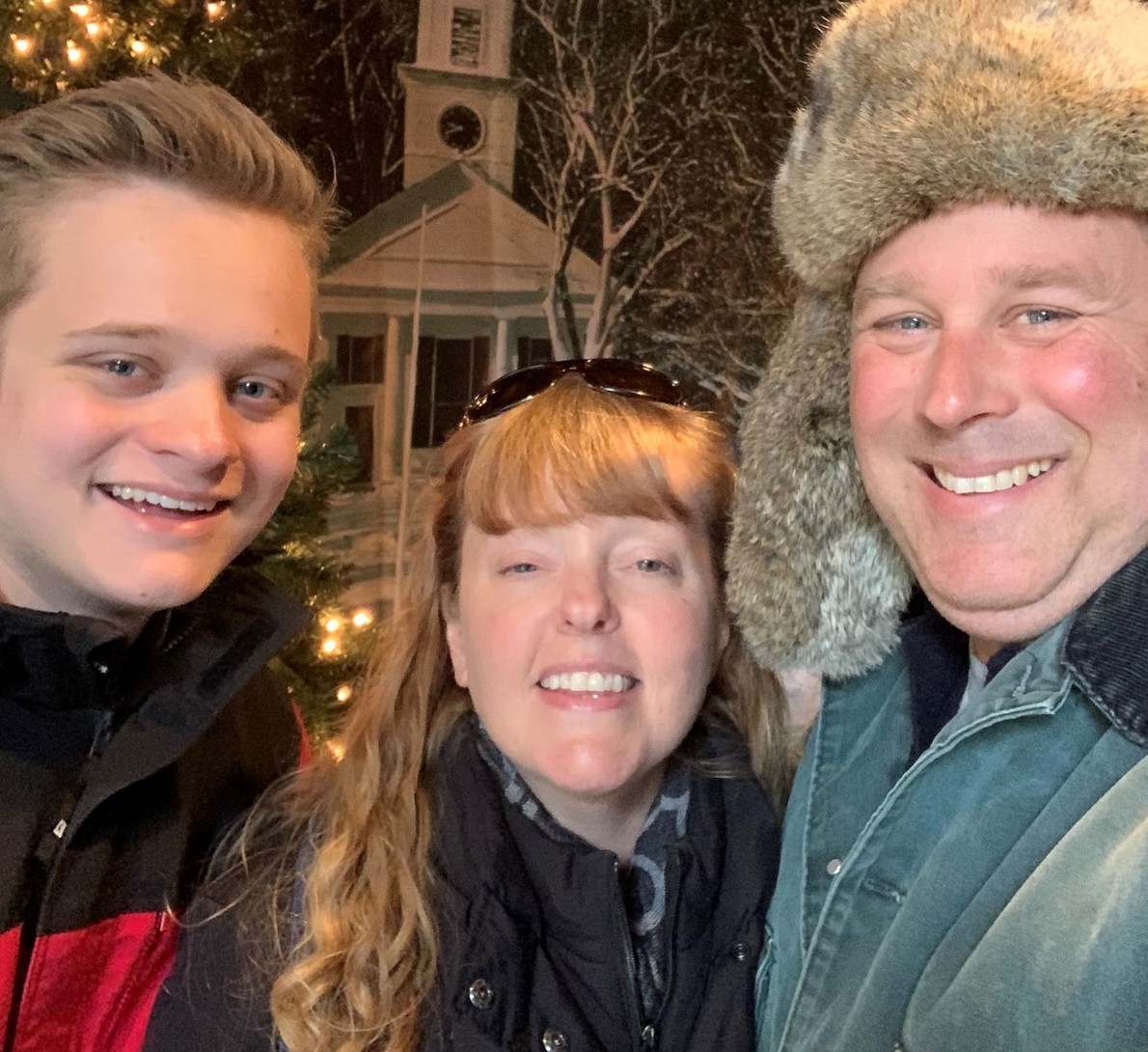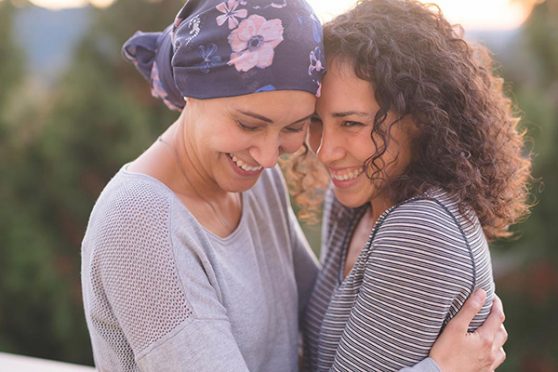Ingrid Hanka had always been an outdoorsy, healthy, active person. But many relatives on both sides of her immediate family had a lot of cancer diagnoses among them, and so, during a routine visit to her primary care doctor in 2014, a nurse practitioner suggested genetic testing.
Forty-one years old at the time, and a nurse herself for more than two decades, the Mansfield Center resident recalled thinking, “No one has ever suggested that to me before, but OK.”
The full panel came back showing Hanka as positive for the BRCA1 genetic mutation, which meant she was at increased risk for certain cancers, like breast, ovarian and pancreatic.
“So I started looking for a doctor to work with me,” Hanka said. “I did a lot of research, and that’s how I found Dr. Brown. I thought she would be the best fit for me. I wanted to be an active participant in my care.”
Dr. Amy K. Brown is Medical Director of Specialty Care for Hartford HealthCare’s Medical Group, Director of Hartford HealthCare’s Division of Gynecologic Oncology, and Associate Chair of the Department of OB/Gyn at Hartford Hospital. She met Ingrid in the late summer of 2014. Her recommendation was a bilateral mastectomy (removal of both breasts), hysterectomy (removal of the uterus), and bilateral salpingo-oophorectomy (removal of fallopian tubes and ovaries) to minimize her risk of gynecologic cancers and breast cancer.
In November 2014, Hanka underwent the double mastectomy with Dr. Elise Gates, and the start of breast reconstruction at Hartford Hospital. The following month, Dr. Brown performed the hysterectomy and bilateral salpingo-oophorectomy.
Finding a Tumor
Home recuperating, Hanka received a call from Brown. “I thought, how nice is that, Dr. Brown calling to check up on me.” The call wasn’t one for pleasantries, however — the pathologist had discovered a 3mm high-grade serous carcinoma in the tissue that Brown had sent. It was so small and so nestled into the fallopian tube that it was hidden from the naked eye. Post-operative tests also showed no other signs cancer.
“Be grateful to that pathologist,” Dr. Brown told Hanka.
Although it was true there was a tumor, Hanka is quick to point out that it was very good luck for her that it was found during what was to have been preemptive surgery. Because this tumor was Stage 1 ovarian cancer — and typically women don’t experience symptoms until at least Stage 3.

“Ingrid’s story shows the importance of women with a history of cancer in their families being proactive and having the genetic testing done,” said Brown. “What we thought was risk-reducing surgery turned out to be the discovery of cancer, and finding it in that early stage was so important.”
Chemotherapy using the drug combination called CARBOPLATIN-TAXOL (Paraplatin-Taxol) was tough, Hanka admits, but her treatment ended in May 2015 and her prognosis was excellent. She maintained her regular check-ins with her doctors “and I was cancer free for five years.” She resumed working as a school nurse at an elementary school in Mansfield Center.
Cancer Returns
In the summer of 2019, blood work showed slightly elevated levels for a specific cancer marker, and a follow-up in November 2019 showed the levels had more than doubled. Scans showed some nodules in her left lung, and exploratory surgery was scheduled for January 2020.
“My lungs were beautiful, pink and healthy,” Hanka said. “But they discovered a malignant pleural effusion, which meant I had cancer in the sac around my lungs.”
“But the great news this time was there was a new drug — it literally hadn’t existed during my first cancer – that Dr. Brown said was going to make a huge difference for my recovery,” Hanka said. Called Niraparib, it is a type of drug called a PARP inhibitor and it works by stopping cancer cells from repairing themselves. Hanka underwent another course of chemotherapy, and was then placed on niraparib.
This August, Hanka began feeling what she described as “head pressure.” It could have been a side effect of her medication, caused by a hike in her blood pressure, but “I knew something wasn’t right.” Even after starting on a blood pressure medication, “I felt this pressure, my ears were ringing.” On a particularly bad morning, she took herself to the Windham Hospital Emergency Department. A CT scan showed a “fairly large tumor in my right parietal-temporal lobe. They needed to do a craniotomy to resect the tumor.
“I need to say that I am — and my family is — very spiritual people,” Hanka said. “We spend as much time outdoors as we can, we laugh as much as we can, we are positive. So we got this initial news, and it was shocking and we were blubbering and sobbing for a while. But then we said, ‘OK, we are going to just do what we need to do.’”
That same weekend as this news was when her younger son was scheduled to move into his UConn dorm to start his sophomore year, and Hanka and her husband Erik were determined not to miss it (he spent his freshman year at home because of COVID, taking classes remotely).
“My husband said, ‘My wife needs to have this weekend,’” Hanka said, so they loaded me up with anti-seizure meds, told me to be careful, and I went home. We packed up my son, we moved him in, and it was amazing. We had the best weekend with him. On Sunday, some family came over to visit, and two days later I had my surgery.”
‘I’m in Great Hands’
Post-operative treatment included stereotactic radiation therapy, a type of external radiation therapy that uses special equipment to position the patient and precisely deliver radiation to a tumor, and a new PARP inhibitor called olaparib that also shows great results in a new study.
It’s highly unusual for ovarian cancer to metastasize to the brain, Brown said. But Hanka said she is encouraged by her doctors and her treatment plan.
“My mindset is I’m going to be fine,” she said. “I have a fabulous prognosis, a greater than 90 percent chance it won’t come back to my brain. Have I had way more surgeries than anybody would think they would have by age 48? Yes. You just never know what’s around the corner. But I am in very good hands. And I always ask a million questions. I feel very confident that everything will be fine.”


